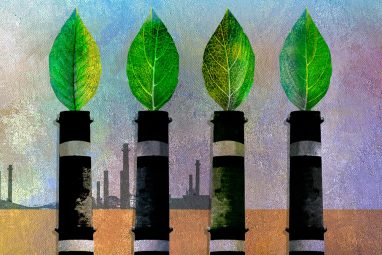
Featured
From Employee-Owners to Environmental Champions
When employees become owners, companies achieve measurably stronger environmental performance. Here’s how this ownership model drives sustainability excellence.

When employees become owners, companies achieve measurably stronger environmental performance. Here’s how this ownership model drives sustainability excellence.

To feed our growing economy, humans consume more than 100 billion tons of natural resources per year, or roughly 11 tons of natural resources for every person on Earth. That includes more than 42 billion tons of nonmetallic minerals, 23 billion tons of biomass, 15 billion tons of fossil fuels, and 10 billion tons of metal ores.

While the large differences in the two companies’ CO2 emissions are partly the result of the size difference between them, those gaps are mostly due to where they sit on the value chain: BASF manufactures a broad range of chemical products, including basic chemicals, while Henkel purchases chemical raw materials to incorporate into its final products.